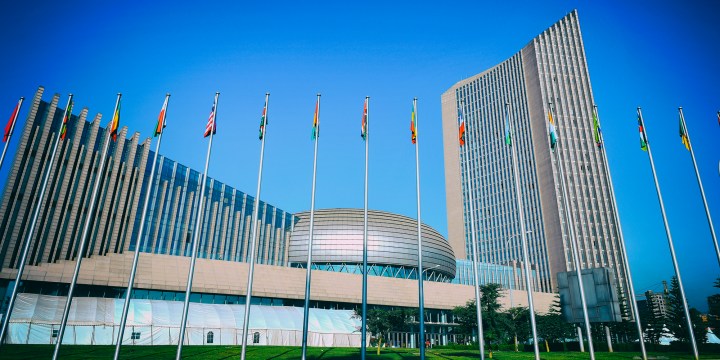GEOPOLITICS OP-ED
The African Union cannot go to Beijing without an action plan

The African Union’s decision to set up a permanent mission in Beijing will raise Africa-China relations to a higher level. Unless a coherent policy is devised with agreement from all AU member states, the continent’s agency in the relationship will suffer.
African heads of state and government approved the African Union’s (AU’s) opening of a permanent mission to China at their summit in February 2022. In taking this step, the pan-African body has signalled its desire to elevate Africa-China relations to a higher level, although it should be remembered that China was actually the one that issued the invitation to the AU to set up an office in Beijing when it opened its permanent mission to the AU in 2015.
China has subsequently reaffirmed its commitment to support the AU’s plan to set up a representative office in Beijing.
While this move paves the way for high-level coordination of Africa-China relations, the question now is: what will the AU’s agenda be in Beijing?
As Africa-China relations enter their third decade, the AU cannot go to Beijing without an action plan. African scholars and policymakers have repeatedly called on the AU to devise a common policy to guide relations. Such a move would ensure that Africa will benefit from and be able to leverage the potential of such a strategic relationship more fully.
In meetings of the Forum on China-Africa Cooperation (Focac), China has committed to supporting the AU’s development plan Agenda 2063, which spells out the continent’s priorities in the areas of infrastructure development, agriculture, industrialisation, energy and health, education, climate change, peace and security. These are areas that find convergence with China’s Africa policy and the Belt and Road Initiative, but to date, Africa does not have a strategy for its engagement with China.
China has improved its connections with the AU through a number of initiatives. For example, the Chinese government financed the construction of the AU’s headquarters in Addis Ababa, Ethiopia. In 2011, the AU was admitted as a full member of Focac. The two partners have even signed an infrastructure agreement to expand Africa’s transport systems. The establishment of a permanent AU mission in Beijing would follow China’s establishment of a permanent mission to the AU in 2015. These ventures signify the importance China attaches to the continental body.
The AU has not always managed Africa’s external relations effectively. A lack of coordination between the AU and its member states when engaging with partners like China and others has resulted in fragmentation and duplication of efforts at the expense of African development. To remedy this situation, the AU is undergoing internal reforms which may have an impact on Africa’s external relations. Internally, AU policymakers acknowledge that the pan-African body wants to move away from the donor-recipient relationship that has structured cooperation arrangements between Africa and its partners. They hope to move to partnerships based on equality, accountability, mutual respect, efficiency, ownership and win-win cooperation. Partnerships should be built on the external partner’s core competencies in clearly defined priority areas, and this should be the AU’s starting point for its agenda in Beijing.
In laying out its agenda, the AU should also develop a framework that accommodates the eight regional economic communities that serve as the building blocks of African integration. The main premise is that stronger unity and joint action will improve the AU’s agency and ensure that Africa gets the most out of its engagement with China. The AU has managed to draft decisions such as the Ezulwini Consensus, the African Common Position on Climate Change, and the Banjul Formula for articulating Africa’s interests and structuring Africa’s relations with external partners. These examples demonstrate that the AU is capable of designing a coordinated framework for guiding Africa-China relations if it chooses to do so.
At present, Africa and China have an imbalanced relationship as a result of the policy gap on the African side. It has been noted correctly that China is able to pursue its goals because of its well-documented policy framework towards Africa. In this regard, one of the objectives of the AU’s mission in Beijing should be to correct this anomaly by devising a strategy that will leverage Chinese expertise to effectively support Africa’s implementation of Agenda 2063. If the AU can make itself more assertive and unified, then Africa’s relationship with China has the potential to transform Africa into a future global powerhouse.
Beijing’s decision to open its permanent mission to the AU, along with its invitation to the AU to establish a permanent mission in China, demonstrates that Beijing wishes to treat Africa cohesively. The AU’s ability to develop a common African policy on China would assert Africa’s agency in Africa-China relations. DM
Hellen Adogo is a research assistant at the University of Johannesburg’s Institute for Pan-Africa Thought and Conversation. This piece is written as part of an ongoing PhD research study on Africa-China relations.


















 Become an Insider
Become an Insider
Comments - Please login in order to comment.